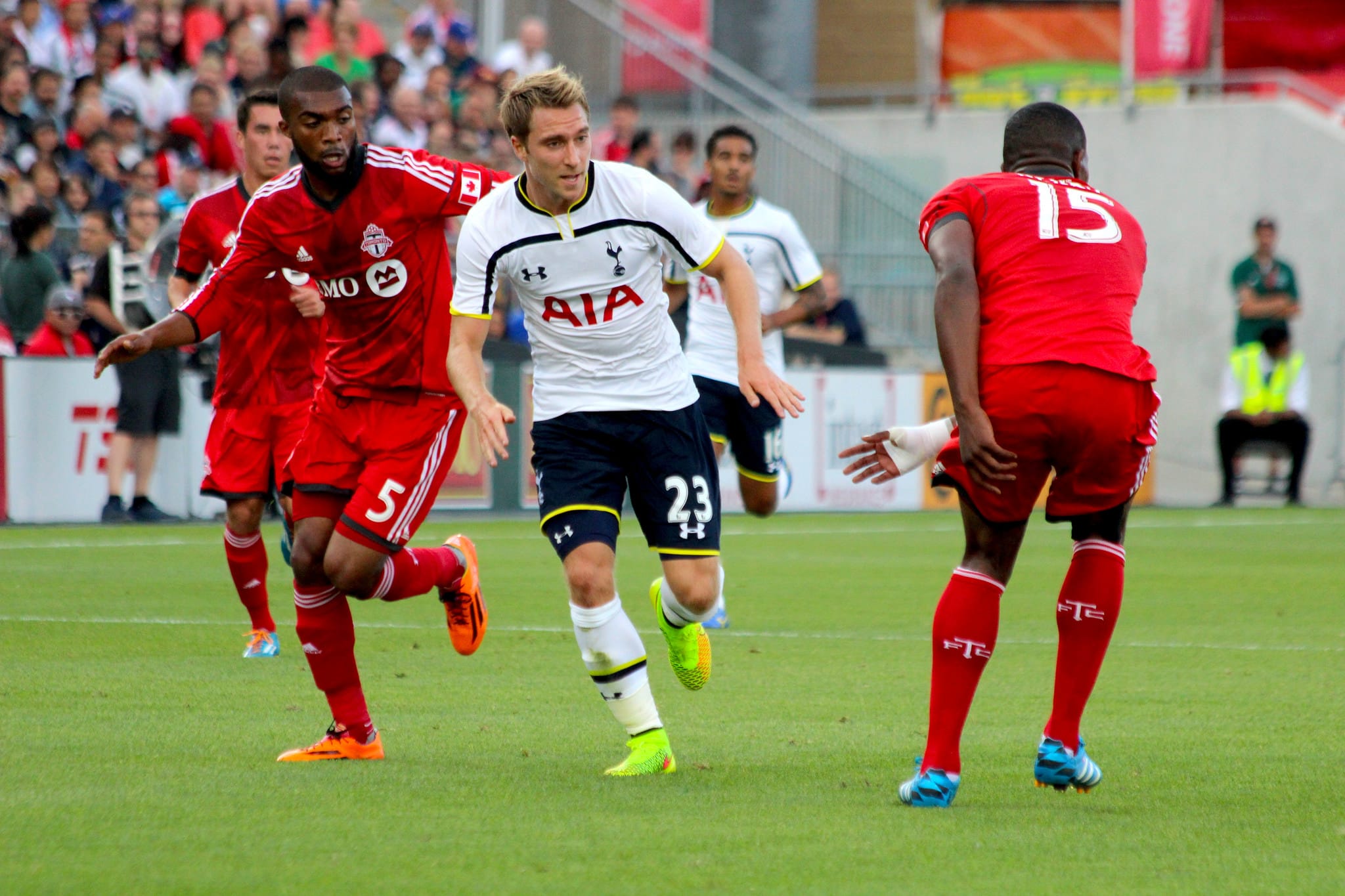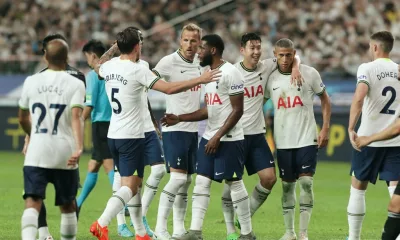
The mood is lifting again at White Hart Lane, dissipating the gloom which inevitably descended with their Champions League elimination at the hands of Monaco at the end of November. The widely predicted defeat at Stamford Bridge on the following weekend deepened the anxiety of fans and players alike and served as a harsh wake-up call to their own ‘Invincible’ dreams.
December has been considerably kinder so far with four wins from five matches–the only blot being the traditional narrow defeat at bogey ground Old Trafford. Spurs occupy the fifth position, only 10 points from leaders Chelsea and just a single point from rivals Arsenal in that much-coveted fourth place.
Alderweireld is finally back, Kane is firing again and even Dele Alli is starting to look like the player who forced his way into England’s Euro 2016 squad. This season’s notional fall-guy, the previously badly out-of-form Eriksen, has bagged himself five goals and an assist in his last four Premier League games.
Tottenham are resurgent and it would appear that full-blooded assault on the title is on the cards for the second season in a row. This is perhaps where the newly nascent optimism around Tottenham’s title chances could be well advised to find its natural ceiling.
Although they are only a few points from their position this time last year, the Premier League is a different animal in 2016-17. Arsenal went from leading 1-0 at Goodison and top of the league to losing at Man City and dropping to fourth within three days. The once- in-a-lifetime simultaneous implosion of four of the nation’s major clubs is consigned to last year’s history books, as 15th placed champions Leicester City would lament, no doubt.
This season, any of the current top six could conceivably end up as champions and almost any club could finish outside the top four.
It could come down to injuries to key players. The reduced contribution of Harry Kane, due to injury and lack of form, significantly affected Tottenham’s ability to pick up maximum points in many games. It is reasonable to assume that equivalent disruptions to Costa, Firmino, Aguero, Sanchez or Ibrahimovic would equally impact the other contenders.
With 21 games to go the league is still too close to call. There’s a new favourite every month and even the lower mid-table teams in the league can shock anyone. Not a basket to place all your eggs in.
This year’s Europa League is another story. Of the 16 seeded teams in the Champions League, 15 have qualified for the chock-out stages, the only exception being the abysmal CSKA Moscow, who finished last in Tottenham’s group. The Europa League field is weaker than it has been for many years.
Schalke, Roma and Man United lurk threateningly in the Europa League knockout draw but apart from these inconsistent threats, the rest of the clubs look eminently beatable for Tottenham. Nine games lie between Spurs and Champions League participation in 2017-18. Avoid defeat in all of them and Tottenham can look forward to maintaining their Champions League standing for another season.
Of the current top six, a strong case could be made that Liverpool and Tottenham have the weakest overall squads. As such, they are significantly more vulnerable to overall loss of form, or disruption due to injury, especially in the forward positions. Spurs fans in particular will keep their fingers crossed that the hugely disappointing and potentially out-of-his-depth Vincent Janssen continues to warm the bench.
Weaknesses in the squad were not addressed in the summer. The £60m spent on Wanyama and Sissoko should have been used to improve the options in the central and wide forward positions. The lack of a direct replacement for Eriksen at no. 10 was made painfully clear during the Dane’s poor run of form at the start of the season. Spurs have reinforced their core making them harder to beat, albeit at the cost of reduced attacking variability.
Tottenham still have their consistently excellent defence, bolstered by the return of the iconic Alderweireld and the impressive form of Hugo Lloris. In Kane, they have an elite striker, capable of seizing the opportunity on the big stage under extreme pressure. Hard-to-beat sides with dangerous strikers make ideal cup teams.
The Europa League brings reduced expectation from the fans and therefore reduced pressure on the players. Their dip in form towards the end of 2015-16 which allowed Leicester to pull away from them and even let Arsenal sneak into second position on the last day of the season, is seen by many as a sign that this side is likely to crumble under the sustained pressure of a long title challenge.
In all probability, this is not a squad capable of maintaining a title challenge all the way to May and overcoming the stronger squads ahead of them. The sheer number of title challengers this season rules out the possibility of an individual collapse handing the title to Spurs.
If Pochettino prioritised the Europa League, and used the FA Cup instead as the competition to blood youngsters and give squad players a run-out, precious game time and focus could be applied to the more worthwhile competition.
For a top flight club to win the FA Cup, they must avoid defeat over six matches. The prize: a day or two at Wembley for the fans and a Europa League berth for next season. Tottenham’s final league position will almost certainly guarantee them European football next season, and Spurs fans have probably had enough of Wembley already this season so the value of an FA Cup win is at once diminished.
The fixture list is another major factor in favour of prioritising the Europa League. Following their last-32 tie with AA Genk in the middle of February, Spurs do not play another title challenger until they host Arsenal on the 29th April, giving plenty of scope for resting players for the key Europa League clashes.
Tottenham are a club on the rise and when their new £400m home is completed in time for the start of 2018-2019, it will increase the capacity to 61,000 and become the largest club-owned stadium in the capital. The fans will be finally expecting Spurs to mix it with the big boys in Europe’s premier competition consistently. Qualification for next years Champions League would be a firm step in the right direction.
Author


The Football Coach
How To Win Football Bets: A Betting Strategy To Help You Win Every Time

The Football Coach
How long is a football pitch? The complete pitch size guide















